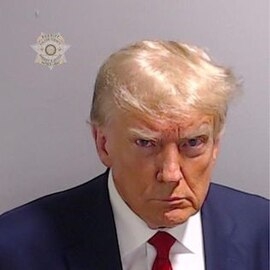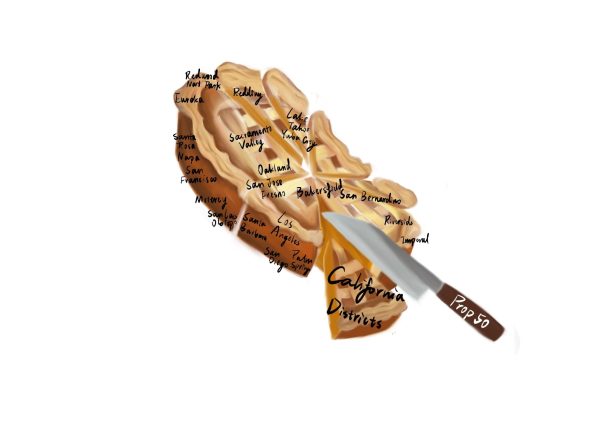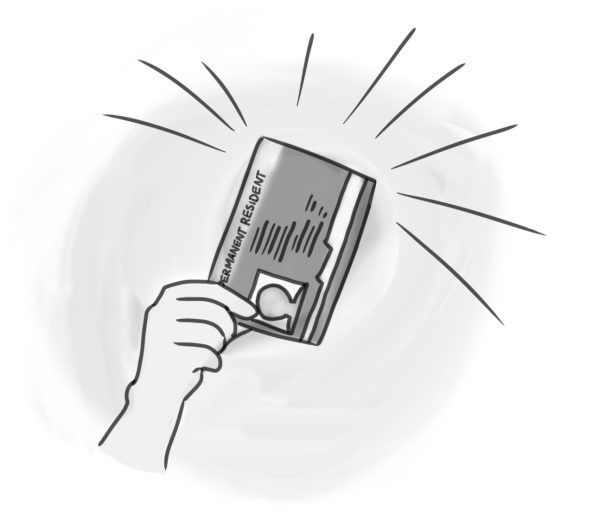Trump’s legal reckoning

photo courtesy of Wikipedia
For the first time in history, a former U.S. President is being charged with criminal activity. In the past, Presidents have been accused of crimes, but never charged. Donald J. Trump, the 45th President of the United States, is facing 34 felony counts of falsifying business records to conceal alleged hush payments of affairs that occurred before the 2016 presidential election. He was indicted by a grand jury, meaning he was formally charged with a serious crime. On April 4, Trump pleaded not guilty to those charges in his arraignment in a New York State Supreme Court. In the country, there is an enormous dividing line between those who believe the criminal charges are a blatantly political, unfair move and others who truly believe in the prosecution. Nonetheless, the indictment will certainly change the political atmosphere leading to the 2024 election.
Allegations about Trump’s affair with Stormy Daniels, an adult film actress, have been occurring for six years and correlate to his recent charges. Trump, in an attempt to preserve his reputation preceding the 2016 presidential election, decided to secretly pay $130,000 to the actress, allegedly using campaign money. The information originated from Trump’s former personal attorney, who admitted to purchasing two women’s silence about their alleged affairs with Trump. These women include Karen Mcdougal, a model, and Stormy Daniels. In addition, the charges state that beginning in mid-2015, Trump organized a hush-money scheme with others to influence the 2016 presidential election, which violated election laws. From late 2016 through 2017, Trump created false entries in the business records of various enterprises in New York regarding these affairs. A hush-money scheme is when money is exchanged for a non-disclosure agreement or an individual’s silence. It is not necessarily or always illegal, but hiding the true purpose of the payments used to buy a person’s silence is. Trump hid the payments by falsifying business records for years. The purpose of the payments was also changed to skirt taxes. All of these charges consist of falsifying business records and campaign finances.
Trump has denied all charges being placed on him. Contrary to popular belief and earlier speculation, he was not handcuffed, placed in jail, or photographed for a mugshot before appearing in court. After his court appearance on April 4, he took to social media to express his disdain towards New York Southern District Attorney Alvin Bragg and Judge Juan Merchan, who were set to prosecute and judge him, respectively. According to The New York Times, Donald Trump has called Bragg “a racist” and an “animal,” while also saying his investigation was politically motivated. To add to the mix, Trump felt his judge had biased opinions about him because of a personal dislike of Trump’s character.
Furthermore, Trump has used the indictment to gain campaign donations and support for his 2024 presidential campaign. Regardless of the result of the case, Trump is still eligible to run in the presidential election. Even if the former president were to be convicted, there is absolutely nothing in the U.S. Constitution that disqualifies a candidate from running with a criminal record. Trump is no stranger to political scandals and his supporters remain unwavering through all of them. He is set on running in the 2024 election and many are more than willing to endorse him. In an NPR/PBS poll released in March, 80% of Republicans said they believe Trump is being unfairly targeted and facing a “witch hunt.” The Republican base and political figures rally around Trump, despite the controversies tarnishing his reputation.
In addition, Claremont High School students have voiced their opinions regarding the trial and indictment of the former United States President. Stella Kuang, a junior at CHS, commented on Trump’s charges.
“I believe the indictment serves as a reminder that no one—including those in the highest positions of power—can be excused by the law,” Kuang said. “Justice deserves to be served regardless of your status or wealth in society, as we see with Former President Trump becoming the very first president charged with criminal activity.”
One of the biggest questions for American citizens everywhere is whether or not Trump could face prison time if he were found guilty. Currently, Trump is released on his recognizance, yet the long-term result of the charges can not be known. The overall charge of falsifying business records is seen as a low-level felony, which hypothetically can result in around four years in prison. However, considering this is Trump’s first offense and he is 76 years old, prison time seems unlikely. The case is expected to be incredibly long and potentially may not even be resolved before American citizens cast their ballots in November of 2024.
Donald Trump will continue to run for president in the upcoming election regardless of the charges against him. Claremont High School students are interested and divided by the charges, just like Americans everywhere. The verdict and effects of the court case remain ambiguous. One thing is for certain, Donald Trump will not go down without a fight and he will do anything and everything in his power to win the 2024 election.
Hello there! Our goal is to provide relavent, engaging journalism for readers of all ages. Your donation will support the student journalists of the Wolfpacket at Claremont High School, and will allow us to purchase equipment, print our monthly issues, and enter in journalism competitions. We appreciate your consideration!

Theo da Silveira is a Senior at Claremont High School and a Sports Editor for the Wolfpacket, entering his third and final year on the staff. In addition...

Areesh Zaidi is currently a contributing reporter for The Wolfpacket, where she has been involved for three years after completing the prerequisite Journalism...








